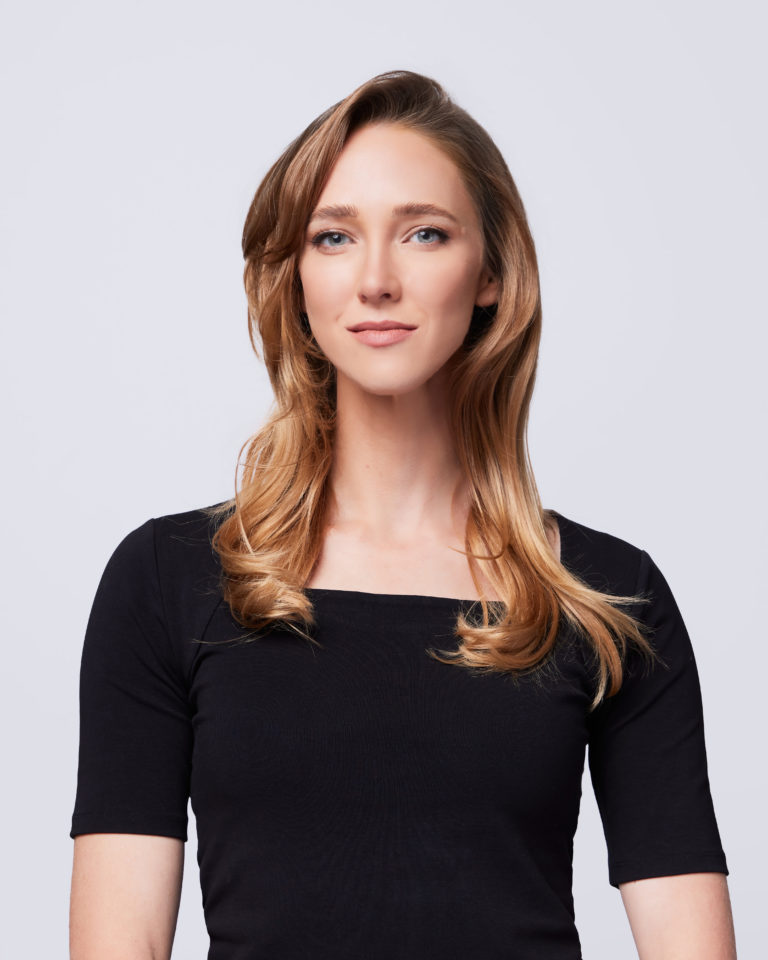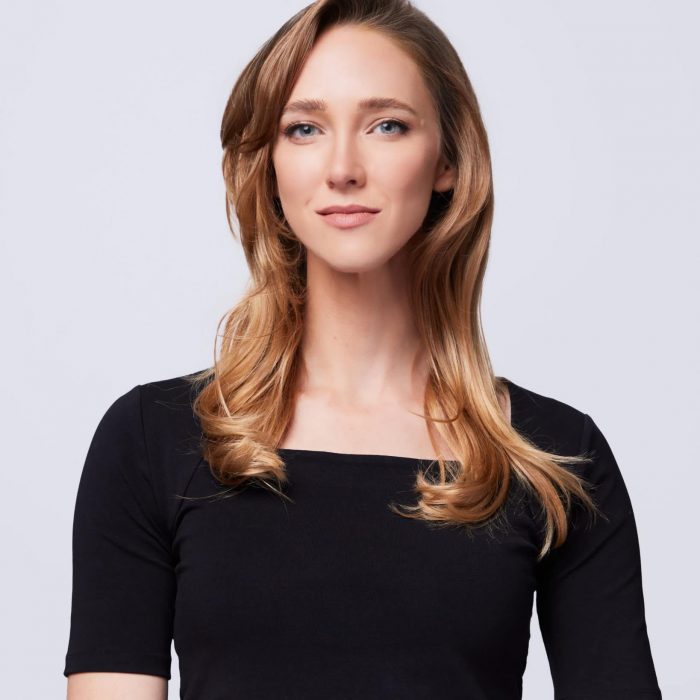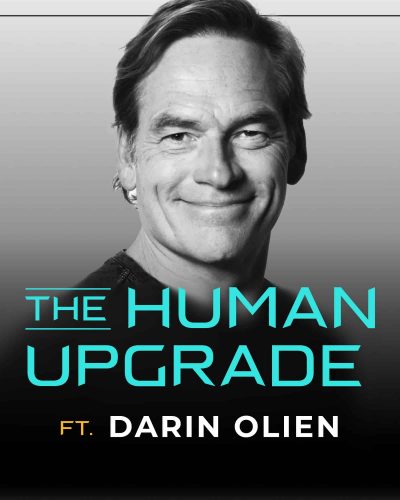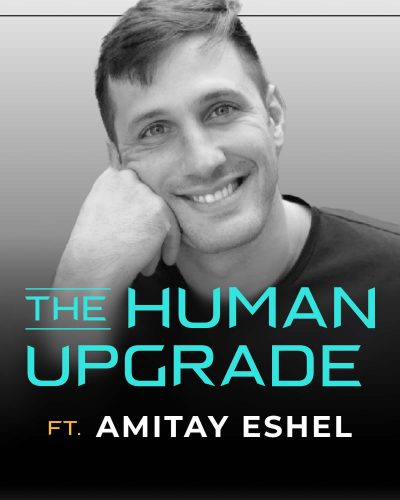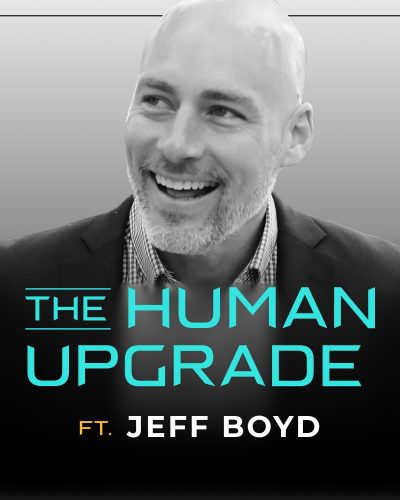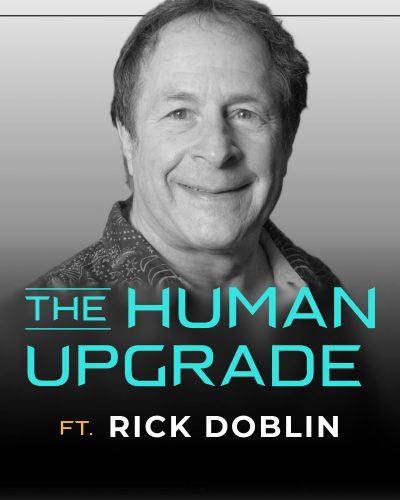In this Episode of The Human Upgrade™...
…you’ll learn how biological age, rather than chronological age, is the primary risk factor behind diseases like cancer, heart disease, diabetes, strokes, even Alzheimer’s. Scientific discoveries show chronological aging may be written in the epigenome, those chemical tags attached to your DNA that control the way DNA operates.
We’re finding out more about both types of aging because of scientists like Morgan Levine, Ph.D., a leading voice in the field of aging and longevity science. She focuses her research on the science of biological aging, emphasizing health span over lifespan.
“If you take the difference between someone’s biological age and chronological age, it should predict the things we care about, the actual things we’re trying to prevent—so death, disease,” she says.
She’s an assistant professor of pathology and the Director of the Laboratory for Aging in Living Systems at Yale University School of Medicine. Her team looks at using bioinformatics to quantify the aging process and test how lifestyle and pharmaceuticals alter the rate of aging.
She’s also a founding Principal Investigator at Altos Labs, a biotech company that focuses on cellular rejuvenation programming to restore cell health and resilience. There, she works on methods for quantifying the system dysregulation that occurs over an organism’s lifetime
Today, she’s going to talk about the science of aging and longevity explored in her new book, “True Age: “Cutting-Edge Research to Help Turn Back the Clock.” Three main drivers—health behaviors, recent stressors and adversity, and genetics—determine your biological aging. She shares how to measure your own biological age and why you should track your aging regularly.
“I believe there's a limit to human lifespan in the body configuration that humans currently have. If we can figure out a way to overcome that, then perhaps not.”
Morgan Levine, Ph.D.
“There’s chronological age and there’s essentially biological age,” Morgan explains. “You could argue you might have more than one biological age. But the idea is, it’s a more accurate estimate of actually how far your body has diverged or how much you have aged, not in chronological time. One of the best ways to measure this is using epigenetics.”
That means looking at your genome, then using AI and machine learning and “all these fancy algorithms,” Morgan says, to predict out what epigenetic age you are.
This conversation gets into topics and makes them make sense for your own aging, like:
- Epigenetics & epigenetic clocks
- DNA methylation & telomeres
- Cell lifespan
- Ageotypes (molecular assessment of aging)
- Phenotypic age
- The “Ceiling” effect
- The “CALERIE” trial
- Nutrition & aging (plants, fasting, ketosis)
- Fitness & aging (energy & brain health)
- Rest & relaxation (sleep & biological programming)
Morgan gives great takeaways on how you can make lifestyle changes to maintain your youthfulness—both inside and out—with low-risk, data-driven biohacking.
More about Morgan Levine, Ph.D.: Morgan has received nearly a dozen total research grants and has been first, senior or co-author of 60 publications. She completed an NIH Postdoctoral Fellow at the UCLA Department of Human Genetics and an NIH Predoctoral Fellow at USC Davis School of Gerontology. She received the Vincent Cristofalo Rising Star Award in Aging Research in 2021, the Nathan Shock New Investigator Award in 2020 and the Glenn Award for Research in Biological Mechanisms of Aging in 2017.
Enjoy the show!
LISTEN: “Follow” or “subscribe” to The Human Upgrade™ with Dave Asprey on your favorite podcast platform.
REVIEW: Go to Apple Podcasts at daveasprey.com/apple and leave a (hopefully) 5-star rating and a creative review.
FEEDBACK: Got a comment, idea or question for the podcast? Submit via this form!
SOCIAL: Follow @thehumanupgradepodcast on Instagram and Facebook.
JOIN: Learn directly from Dave Asprey alongside others in a membership group: ourupgradecollective.com.
- Our Partners
- Links & Resources
- Key Notes
Websites: morganlevinelab.com and altoslabs.com
Book: “True Age: “Cutting-Edge research to Help Turn Back the Clock”
Instagram: instagram.com/dr.morganlevine/
Twitter: twitter.com/drmorganlevine
Facebook: facebook.com/dr.morganlevine/
LinkedIn: linkedin.com/in/morgan-levine-aa957463
- I think the real challenge is, “Can we do it in a human?” which is really what we care about. We don’t care about having young cells in our dish necessarily or even mice. – 3:48
- There’s chronological age and there’s essentially biological age. – 8:55
- For me, it might be natural. I have ADHD, so I can get in a hyper focused state very easily. – 14:22
- Do you mind if I ask your chronological age? – 17:38
- Talk to me about telomeres versus these methylation-based aging clocks. What’s the difference. – 19:51
- We’re actually working on ways you can do ensemble learning and actually get the best measure from combining all the clocks that have been developed. – 23:20
- We’re developing a way to actually just from a blood methylation sample, predict things about different organ systems in terms of. So, you get an immune and inflammatory age, a kidney age, a liver age, a brain age, a musculoskeletal age. And so far, it seems to be working quite well. – 28:58
- What percentage of aging do you think is genetic versus epigenetic are caused with the environment? – 34:55
- We are interested both in what pushes aging and to measure that, but also what can slow it or reverse it or repair the damage. – 41:24
- I think the other thing that I think is really cool and maybe as similar is this idea of parabiosis, so this is where they do a lot exchange. People call it the vampire therapy. – 43:15
- There’s entire ethics departments that haven’t been made yet to study what we’re talking about. The future has got so many interesting things to do. – 49:12
- What’s your view of that as an aging scientists? What’s the right protein amount? – 55:08
